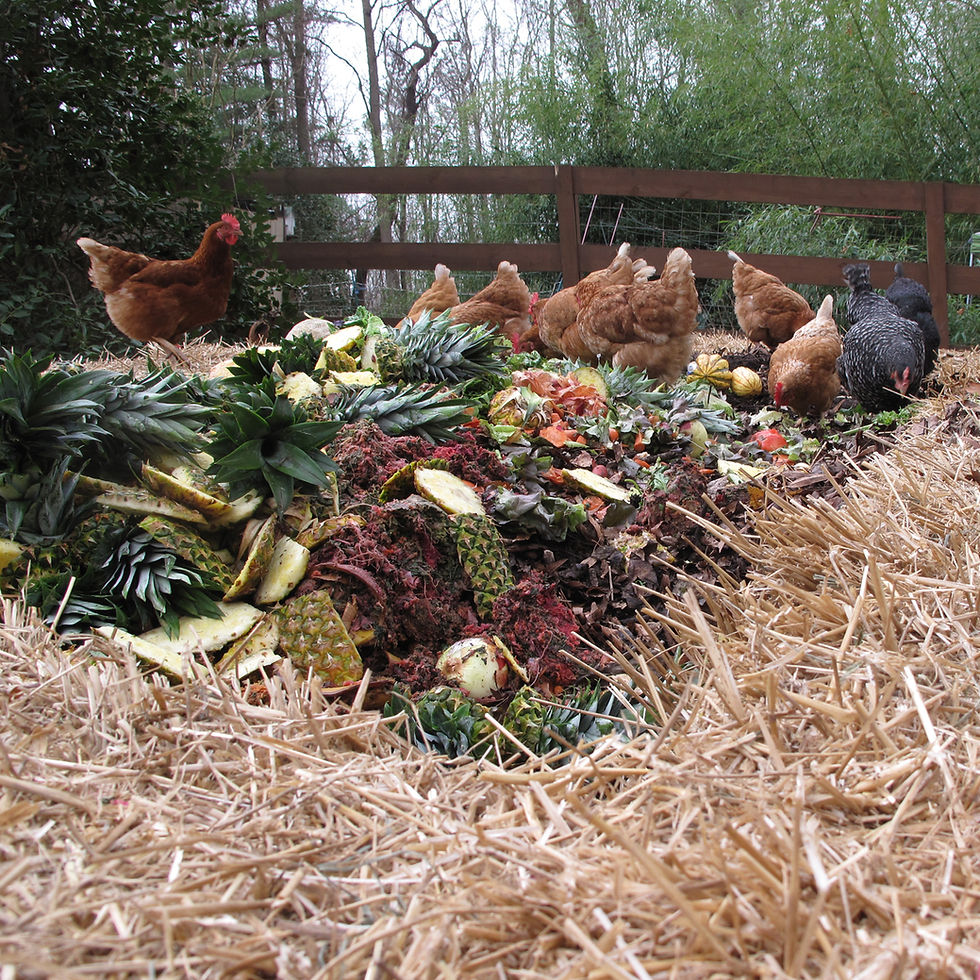How to Compost Food Waste
- Terra Firma
- Aug 13, 2018
- 2 min read
Updated: Nov 3, 2018

No matter how frugal or mindful we are, each of us creates some amount of food waste. Why not give it a purpose?
We've already gone into depth about how and why food doesn't decompose in the landfill. Today we'll discuss two ways to help turn your food scraps into nutrient - rich compost.
#1: Do it Yourself
Keeping your own compost bin is manageable for anyone with space and motivation.
Inside, keep a dedicated food waste bin on or under your kitchen counter or in your freezer. Unless your container is air-tight, be sure to empty your bin daily to avoid bugs!
Acceptable food waste:
- Fruits, vegetables, and their trimmings
- Coffee grounds
- Tea bags
- Egg shells
- Layers of shredded newspaper
Avoid:
Meat, bones, grease, eggs and dairy, pet waste, non-compostable material (ie foils)
Questionable:
Alliums (onions & garlic). It will make your compost stink in a hurry!
Once weekly or at your convenience, mix your food waste into a prepared outdoor composting bin. You may use a store bought compost bin or turner, but there is no need if you have space in your back yard.
Define the sides of your compost area with some old 4x4 pallets or straw bales. Your compost pile should be at least a few feet deep to ensure you can bury the food scraps adequately and to provide the mass necessary to create heat inside the pile. Food scraps should be mixed with brown material - eg leaves or straw. The ratio of browns to greens is about 20:1 but this can be adjusted according to how your pile looks. Too wet? Add more browns. Too dry? Cut back on browns.
Turn the pile regularly, at least once a week but ideally every few days. A turner makes this part of the process fairly easy, but otherwise a pitchfork will do the trick. Be sure any food that has not yet decomposed is under at least a foot or so of brown material to discourage critters.
Hints:
- The smaller your compostable materials are, the more quickly they will decompose. Cut scraps into small pieces and shred yard waste.
- Hasten the decomposing process by freezing food waste before adding to your compost pile.
- Compost is ready when it looks dark and rich and has an earthy odor. Add it to soil in the garden, in containers, or top dress plants.
Or...

#2 Let Us Do That
Put all your scraps into our air-tight 5 gallon bucket. Leave the bucket out for our collector every two weeks (we'll email you the day before to remind). We'll pick up your bucket and replace it with a clean, empty one. After 20 buckets, shop our Farm Store for some free stuff.

Hints:
- Keep a small lidded container on your counter to store scraps in the short term. Bring your scraps to your 5 gallon bucket every day or two.
- Place our decal on your window or fridge to remind everyone in the household to recycle their food scraps.






Comments